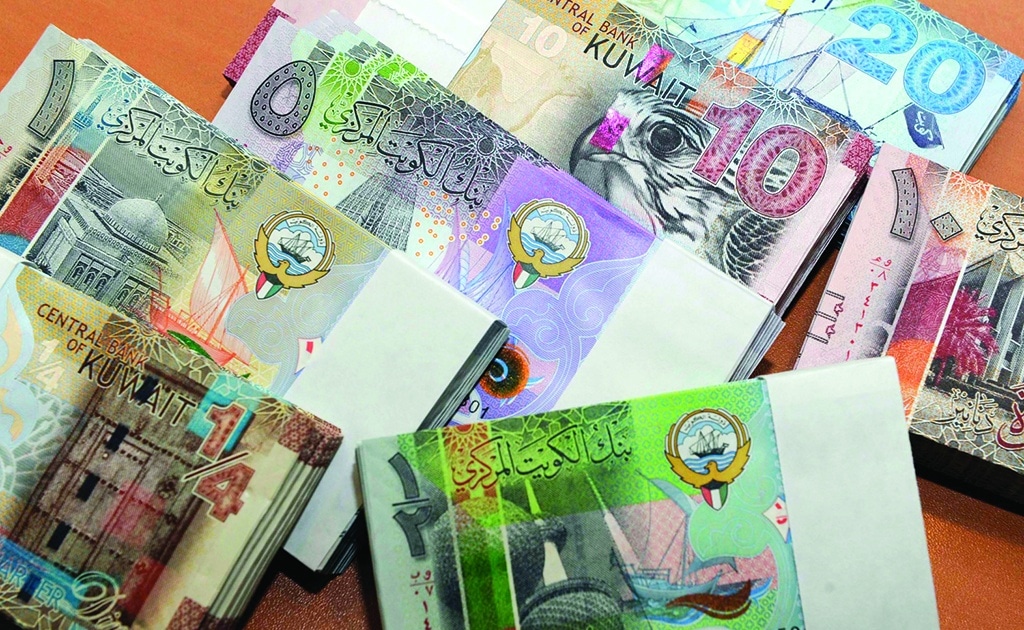By Faten Omar
KUWAIT: Money gifted to children during Eid is a tradition that kids eagerly await. The eidiya is either placed in an envelope or given directly by parents and relatives. Seif Maraqa, 59, a father of two, said he usually starts his morning by giving his 10-year-old child KD 5 and his 16-year-old son KD 15. "Eidiya nowadays is different from back then. We used to line up and wait our turn to get eidiya. After Eid prayers, my father used to call us. We kissed his hand and head to get his blessings, and then we got the eidiya," he told Kuwait Times.
"Our dreams were small - a quarter dinar was a big amount that bought us snacks and a ball to play with our neighbors' children all day long. If the eidiya was big, my mother would take the money and tells us she will save it for later. But we never received it later," he laughed.
Eidiya is not exclusive to children - brothers also feel obligated to give Eidiya to their younger sisters. Mohammad Raziuddin, 28, a brother to two sisters, told Kuwait Times he spends between KD 200 to 300 on eidiya for his sisters and younger cousins. "In my culture, the elders give the young ones. That is why I give eidiya to my two sisters who are 22 and 23 years old. Money aside, Eidiya can also be in the form of chocolates, toys, clothes and food," he explained. Raziuddin revealed that as long as his sisters are not working, he will keep giving them eidiya. "I give more money to my sisters because they are at an age where they require more in order to spend on their needs."
Nada Adel, 41, a mother of twin girls and a son, said: "Raising three children is financially exhausting. Buying clothes and giving eidiya is not only for your own children, but also the children of brothers and sisters, who outnumber mine. My husband spends a total of KD 450 on eidiya." Adel said back in the day, people were not spending that much money, noting that the value of money was better than today, especially as children's minds are more open to reality now. "They want more and more; KD 5 and 10 aren't big amounts of money for them," she said.
Redha Al-Shammeri, 69, a grandfather, said that he loves to spoil his grandchildren with money and chocolates on Eid. "I still give my sons along with my grandchildren eidiya. They are never old to me. I give my children between KD 300 to KD 500, and my grandchildren KD 50 to 150," he told Kuwait Times. Redha said when he was a child, he used to go with his father to pray Eid and distribute eidiya to the children in the neighborhood.
"My family used to go to the nearest mosque for prayers. After we finished, he used to fill his pocket with chocolates, candies and a small amount of money to give to children praying at the mosque. After that, we went home and dressed in our finest clothes, usually newly-bought or tailor-made especially for Eid, to get our eidiya of 100 fils," Shammeri recalled. "Usually the whole family meets at the grandfather's house for Eid breakfast. I remember that my brothers and I were shy, always running away when my uncles gave us eidiya. Other than that, eidiya is to be divided equitably among the sons, and each of them is given according to his age," he said.
Eidiya is not only for children anymore - Um Asad told Kuwait Times that husbands are also obliged to give eidiya to their wives. "I expect a golden necklace from my husband as eidiya. I think I deserve it after my huge efforts during the holy month of Ramadan," she said. Um Asad said giving wives eidiya was not a thing in the past, but believes the burden on women is more at the present time "Women are not just raising children - they work and contribute to household responsibilities while teaching children. Men should appreciate that."











